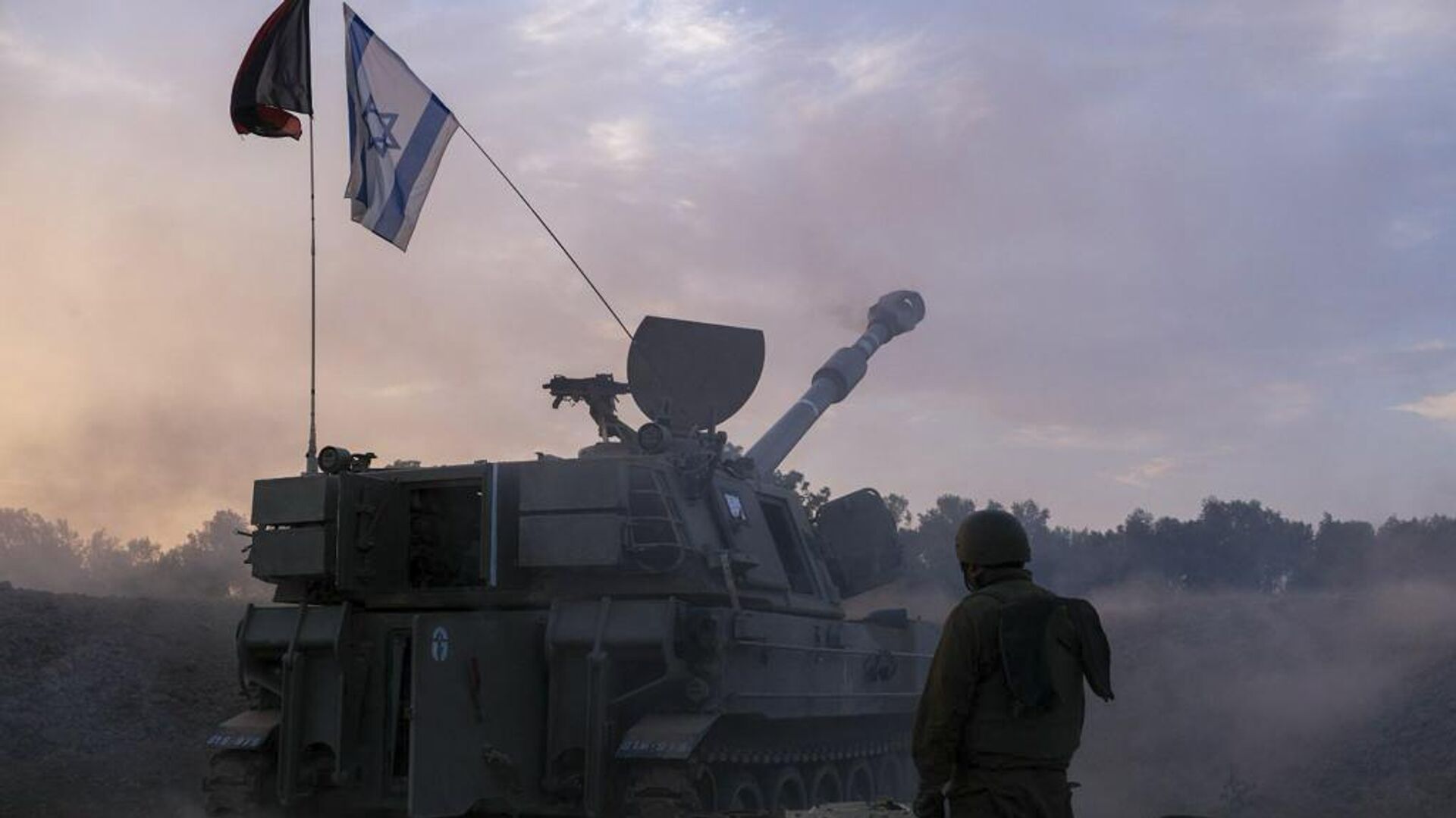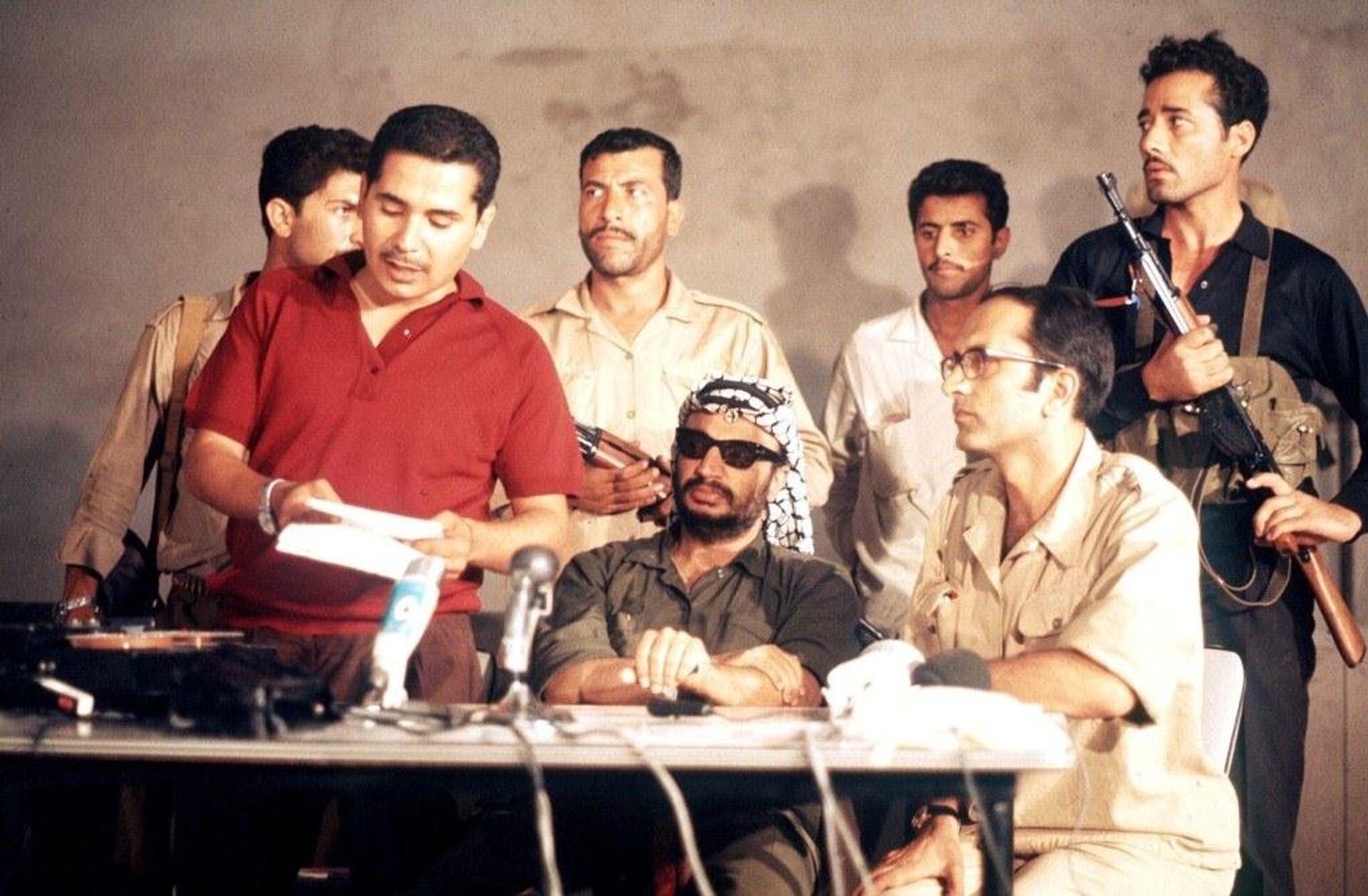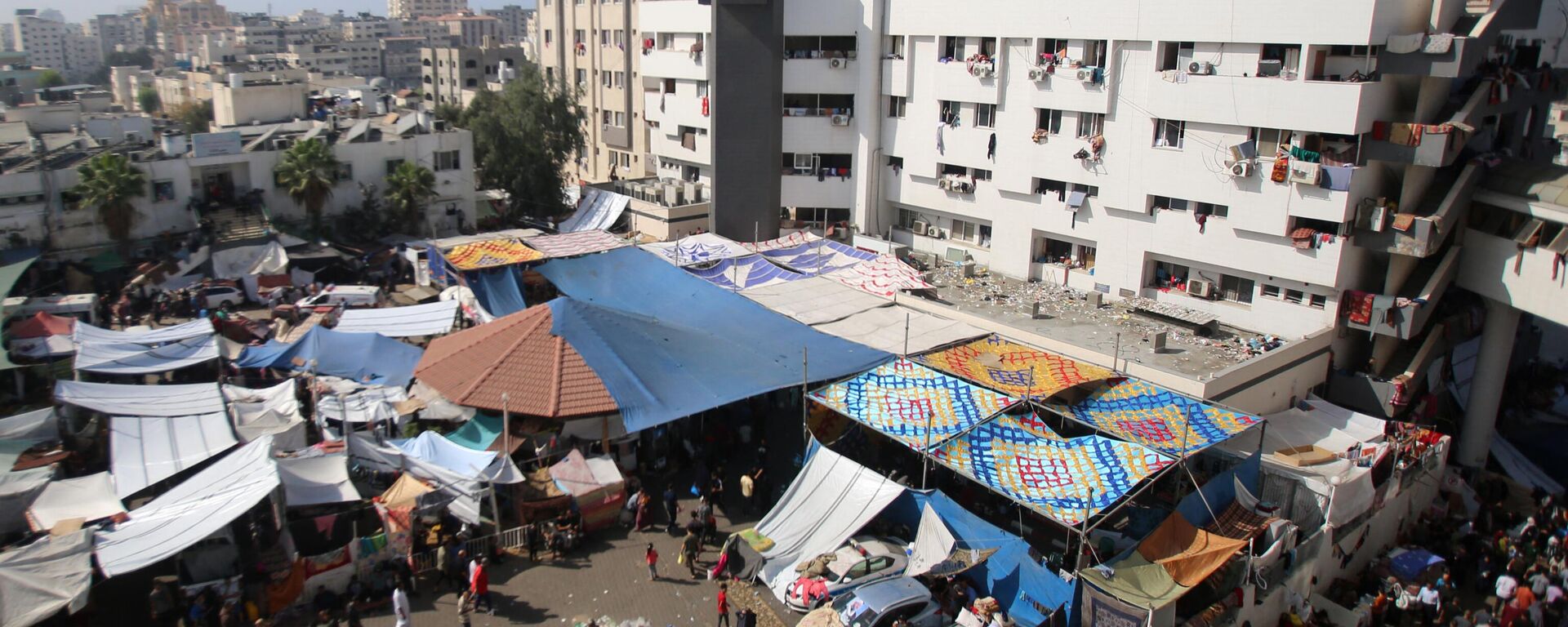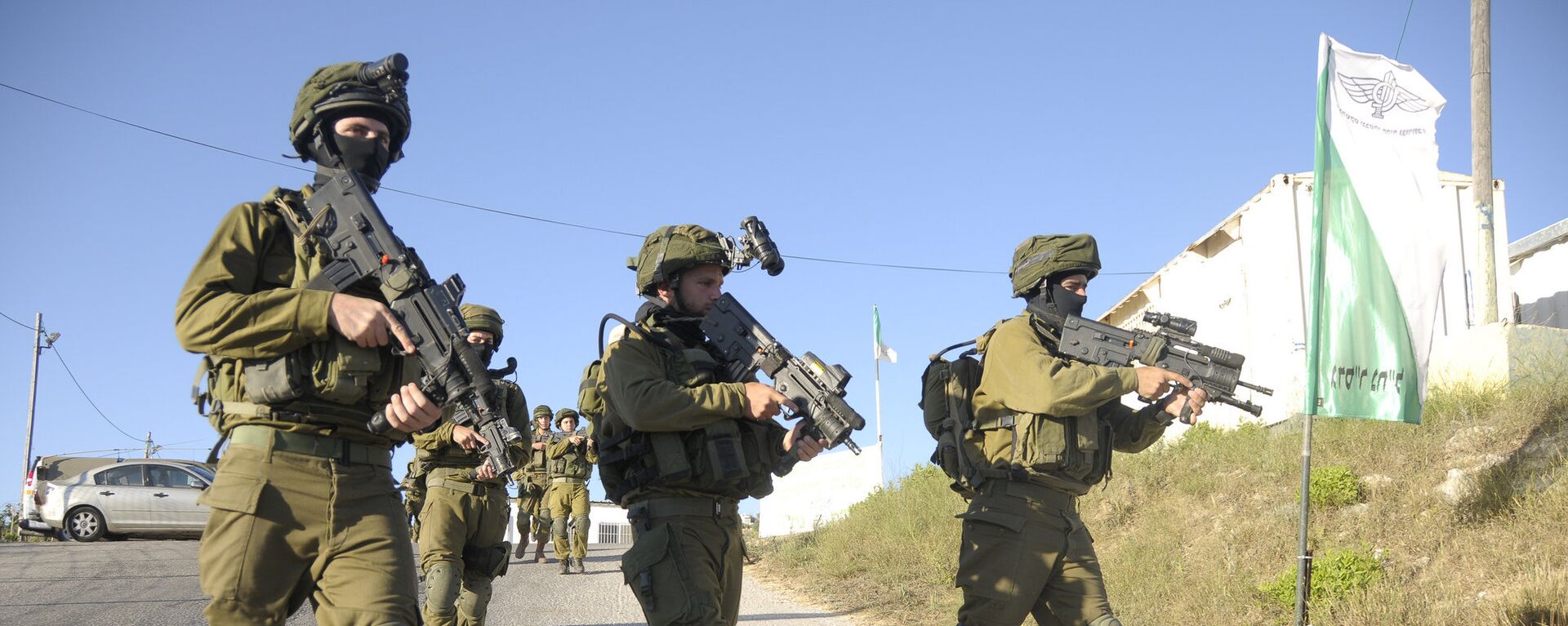Will Israel Defense Forces Resume Gaza War When Humanitarian Pause Ends?
16:22 GMT 30.11.2023 (Updated: 10:27 GMT 30.01.2024)

© AP Photo / Israel Defense Forces
Subscribe
The Israel Defense Forces (IDF) announced the extension of the humanitarian pause in the Gaza Strip for the seventh day on Thursday. What will happen next?
Ten Israeli hostages are reportedly set to be released on Thursday, as per a Hamas source quoted by AFP. The humanitarian pause took effect on November 24, envisaging the return of hostages by the Islamist group and the release of Palestinian prisoners by Israel. The initial four-day pause has repeatedly been extended, and yet it is unclear how the situation will evolve when the temporary truce ends.
"In my opinion, Israel will not start the operation. Israel has completed the operation and it will not be resumed," Dr. Simon Tsipis, expert on national security, political science, and international relations, told Sputnik.
Last Sunday, US President Joe Biden reportedly expressed concern about the potential continuation of the IDF ground operation in southern Gaza in a phone conversation with Israeli Prime Minister Benjamin Netanyahu, per Axios. Following Israel's evacuation of Gazans from the north, around two million Palestinians have concentrated in the southern part of the strip.
Biden and US Secretary of Defense Lloyd Austin are said to have warned Tel Aviv against waging the war in the south with the same intensity and scope as the IDF earlier demonstrated in the north. Per Gaza’s Health Ministry, 14,800 Palestinians, including 6,000 children, have been killed in the strip since the start of Israel's retaliation operation.
Meanwhile, on Thursday, US Secretary of State Antony Blinken lauded the recent extension of the humanitarian pause: "The pause in fighting has demonstrated success in securing the freedom of hostages and in delivering humanitarian aid to Gaza – we want to see it continue," he said.
Tsipis suggested that apart from external pressure on Israel from the United States, the European Union, and other states, including Turkiye, there are other obstacles in the way of the operation's resumption.
"First, Hamas still holds prisoners of war and the bodies of dead Israelis. This will delay the exchange," the expert believes. "And the negotiations will drag on for a very long time, more than a month, until everyone is returned. [Second,] Israel will not resume this operation because it is not in its interests to eliminate Hamas completely. Israel itself is not capable of supporting and ensuring the livelihoods of two million Palestinians in the Gaza Strip. Until a solution is found on what will happen after the liquidation of Hamas, this group will not be liquidated. Moreover, now Hamas is doing everything to show that it is capable of these negotiations. And the speed with which it returns 10 people every day, including prisoners of war, softens Israel. And the critical moment has already been missed."
A military operation in the southern part of Gaza is "really risky, dangerous, and complicated because more than two-thirds of the Palestinians in Gaza now are located in this part," echoed Ayman Yousef, professor in political sciences and international relations at the Arab-American University in Palestine.
"Khan Yunis, which is situated in southern Gaza, is likely one of the biggest cities in the Middle East in terms of population," Yousef told Sputnik. "And according to many sources, a part of Hamas’ leadership, the military leadership affiliated with the Al-Qassam Brigade, is located there. The city is very much crowded, and it has a special geopolitical situation."
Per the academic, if the number of Palestinian civilian casualties multiplies, the conflict may go out of control and spill over into "the West Bank and even Lebanon, the Golan Heights and Syria, and some other countries."
Potential Consequences of South Gaza Op
Yousef suggested that Israel cannot uproot Hamas and that the fight would only bring more destruction and suffering until the international community steps in and enforces a cessation of hostilities. "Gaza has become a kind of hell on earth. It is not suitable for human living anymore," he said.
Tsipis presumed that a continuation of the operation in the Gaza Strip would be costly for Tel Aviv, not in an economic, but in a diplomatic sense: "A large number of civilian casualties will bring down Israel's reputation on the world stage," he believes. "And a large number of anti-Israeli sanctions and anti-Israel UN resolutions will be applied."
"A humanitarian catastrophe is brewing in the south of the [Gaza] strip," he continued. "And Egypt opposes the continuation of the military operation in the south, since it would be on the border with Egypt. All indicators say that this operation will be stopped. It will not be resumed even after several months. The Israeli Army will withdraw its forces from the Gaza Strip."
Israeli Civil and Military Officials Signal Readiness to Resume War
Meanwhile, the Israeli media is continuing to beat war drums: per the Jewish press, the IDF is using the humanitarian pause to enhance its readiness and develop future operational plans.
Thus, on Monday, the IDF Southern Command carried out an operational forum focused on the Gaza war’s lessons, according to JNS. The gathering was convened by the commanding officer of the Southern Command, Maj. Gen. Yaron Finkelman. Israeli military officials, named by the Israeli press as "key to prosecuting the next stages of the war," also participated in the forum.
Furthermore, on Wednesday, PM Netanyahu, Defense Minister Yoav Gallant, Alternate PM Benny Gantz, and IDF Chief of Staff Lt. Gen. Herzi Halevi signaled readiness to immediately continue the operation once the humanitarian pause is over.
On the same day, Israel’s envoy to the United Nations, Gilad Erdan, subjected UN Security Council meeting participants to criticism for calling for an immediate and protracted ceasefire in the Gaza Strip. "Every call for a ceasefire means Hamas gets to live to see another day, terrorizing Israelis and impoverishing Gazans," said Erdan, referring to Hamas' staunch anti-Israeli stance and non-recognition of the Jewish state.

Yasser Arafat delivering a press conference in 1970 during Black September. Arafat lead the Palestinian Liberation Organisation (PLO) in the civil war fought to determine control of Jordan
© Photo : Rex Features
1982 Beirut-Style Way Out
Meanwhile, The Wall Street Journal reported in November that some Israeli and American officials are discussing the idea of removing thousands of lower-level militants from the strip in order to wrap up the war. Per the publication, the idea evokes memories of the US-brokered deal that allowed the Palestinian Liberation Organization (PLO) fighters to leave Beirut during Israel's siege of the city.
The siege of the western part of the Lebanese capital lasted from June 13 to mid-August 1982. At the time, the IDF saw the siege as an alternative to urban warfare, which would have involved unacceptable levels of casualties. By August 18, 1982, Washington had brokered a deal between Israel, Lebanon, the PLO, and Arab states. Under the agreement, PLO fighters were removed from Beirut to Tunisia, Yemen, Jordan, and Syria. The evacuation was supervised by the US, French, and Italian militaries.
The US media outlet quoted one of the proposals put forward by an Israeli military think tank. It envisions the creation of "Hamas-free security zones" after the possible expulsion of the Palestinian group from the strip. According to the plan, these zones would be administered by the new Gaza authorities with the support of Saudi Arabia and the United Arab Emirates (UAE). Still, so far the plan has faced opposition from the United States, which favors the participation of the Palestinian Authority (PA) in a post-war government in the Gaza Strip.
The publication remarked that Israel, the United States, and Arab countries have yet to reach a compromise on who should govern the enclave in the future.



